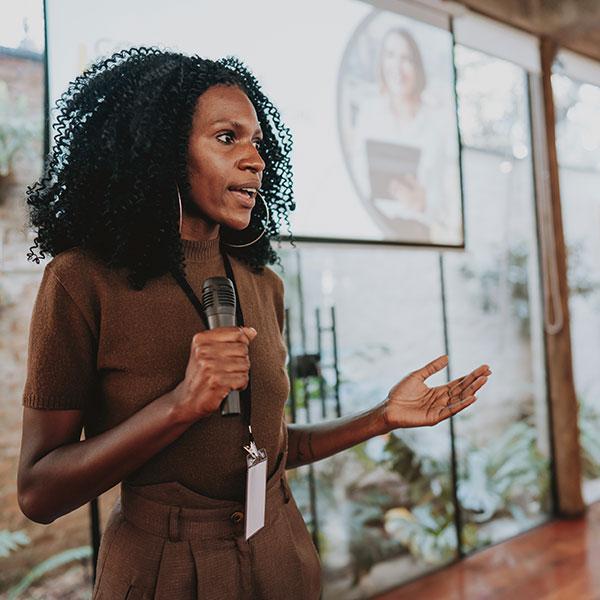For decades, hiring for ‘culture fit’ was the gold standard when building teams. Walk into any discussion about talent acquisition, and you'll inevitably hear phrases like "they'll fit right in" or "they're one of us." On the surface, this approach seems logical - after all, who wouldn't want team members who share common values and work well together?
But here's the uncomfortable truth: what we call ‘culture fit’ often masks something far more problematic… affinity bias. And in an increasingly competitive talent landscape, this outdated approach isn't just limiting, it's counterproductive.
The hidden cost of culture fit
When we hire for culture fit, we're essentially looking for people who mirror our existing team. This is essentially affinity bias in action - the unconscious tendency to favour people who are similar to ourselves in background, interests, or experiences.
This feels comfortable and reduces the perceived risk of a ‘bad hire’. However, this comfort comes at a significant cost. Research consistently shows that homogeneous teams, while potentially harmonious, often fall into the trap of groupthink, where challenging ideas are suppressed in favour of maintaining consensus.
Consider this scenario: a growing tech company consistently hires candidates who attended similar universities, share comparable backgrounds, and think in remarkably similar ways. Yes, these people may integrate seamlessly, but they also perpetuate the same blind spots, limiting the company's ability to innovate or identify emerging market opportunities. The result? Stagnation disguised as stability.
Recognising affinity bias in action
Affinity bias operates subtly, often below the conscious radar of even well-intentioned hiring managers. It manifests when we favour those who share our educational background, communication style, or even leisure interests. Comments like "I could see myself having a coffee with them", or "they remind me of myself at that age", are red flags - indicating that personal similarity, rather than professional capability, is influencing our decision-making.
There are also financial implications to hiring incorrectly. According to research by CIPD, the average cost of recruiting a single employee in the UK ranges from £1,000 to £2,500 - and that’s before factoring in the cost of turnover. In their survey of organisations that had recruited in the past 12 months, 41% reported that new hires always, mostly, or sometimes, resigned within the first 12 weeks. Even more concerning, 27% said candidates always, mostly, or sometimes, failed to show up on their first day.
These figures highlight the real cost of misalignment, not just in pounds, but in lost time, team morale, and business momentum. When hiring decisions are clouded by unconscious bias, the risk of poor fit increases, leading to avoidable churn and reputational damage.
Recognising affinity bias is the first step. Addressing it requires structured, objective hiring practices and a commitment to evaluating applicants based on what they bring to the role, not how much they remind us of ourselves.
The culture contribution alternative
Rather than asking "Will they fit in?", progressive organisations are asking "What will they bring?" This shift from culture fit to culture contribution represents a fundamental reimagining of how we think about team composition and organisational growth.
Culture contribution focuses on identifying those who can enhance and evolve your existing culture, yet still aligning with core organisational values. It's about finding individuals who bring fresh perspectives, challenge assumptions constructively, and introduce new ways of thinking that push your organisation forward.
This approach recognises that healthy cultures aren't static entities to be preserved unchanged. Instead, they're dynamic systems that benefit from regular infusions of new ideas, experiences, and approaches. An individual who brings experience from a different industry, represents an underrepresented demographic, or approaches problems from a unique angle can inject vital energy into established teams.
Building a culture contribution framework
Implementing a culture contribution approach requires deliberate restructuring of your hiring process. Start by clearly articulating your organisation's core values - the non-negotiables that every team member must embrace. These might include integrity, customer focus, or continuous learning. These values form the foundation upon which cultural diversity can flourish.
Next, identify areas where your current culture could benefit from enhancement. Perhaps your team excels at execution but struggles with creative problem-solving. Or maybe you're strong on technical skills but need fresh perspectives on customer experience. Use these insights to inform your candidate evaluation criteria.
During interviews, ask questions that reveal how candidates have contributed to positive change in previous roles. Explore scenarios where they've challenged the status quo constructively or brought new perspectives to established teams. Look for evidence of their ability to both respect existing structures and improve them thoughtfully.
The business case for change
Culture fit served its purpose in an era when predictability and conformity were prized. But in today's fast-moving, innovation-driven economy, the organisations that thrive will be those brave enough to prioritise culture contribution instead.
And it’s not just about changing interview questions - it's about fundamentally reimagining what makes a team successful. It requires courage to move beyond the comfort of familiarity and embrace the productive tension that comes from diverse perspectives working together toward common goals.
The benefits of prioritising culture contribution extend far beyond moral imperatives around diversity and inclusion. Diverse teams generate superior financial performance, demonstrate enhanced innovation capabilities, and make better decisions by considering a broader range of perspectives and potential outcomes.
In our current economic climate, where skills shortages have more than doubled since 2017 and talent acquisition has become increasingly competitive, organisations cannot afford to artificially limit their talent pool. Companies that embrace culture contribution gain access to previously overlooked talent segments, often finding exceptional people who may have been dismissed by competitors still clinging to traditional culture fit models.
Moreover, authentic diversity strengthens employer branding. Organisations known for valuing diverse perspectives and culture contribution naturally attract a broader range of high-quality professionals, creating a positive feedback loop that enhances overall talent acquisition effectiveness.
Ready to build an inclusive, successful workplace that attracts the best professionals? Download our free guide ‘The talent magnet: building a workforce that comes to you’ and become a destination employer.





